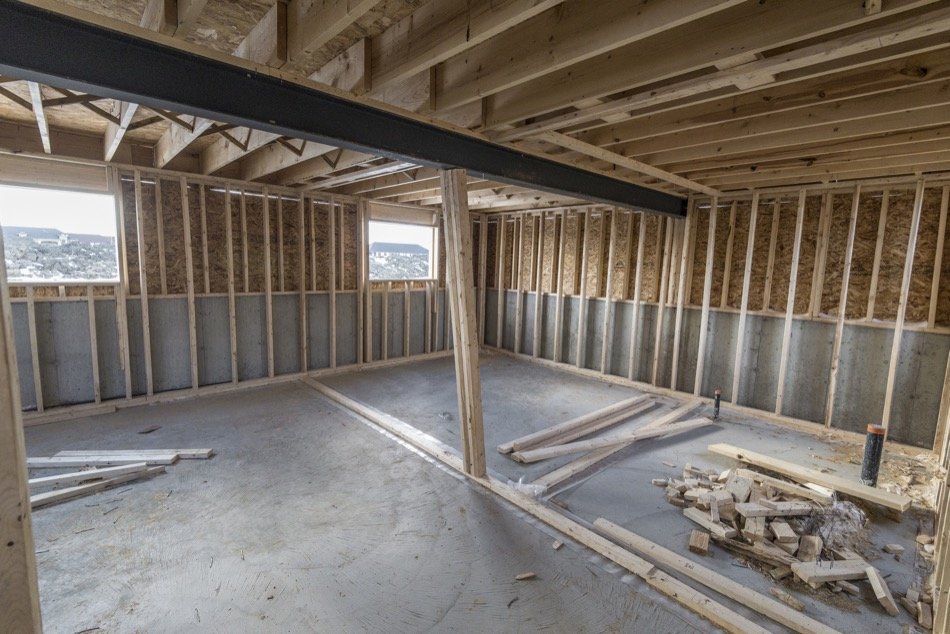3 Important Considerations Before Constructing a Home Addition
Posted by Dave Kotler on Thursday, July 15th, 2021 at 9:34am.
 Many homeowners would rather not sell a home but make upgrades that will accommodate their changing needs. Extra space may be needed when families grow, an aging parent moves in or when business owners work from home. These are only a few of the many reasons for a home addition.
Many homeowners would rather not sell a home but make upgrades that will accommodate their changing needs. Extra space may be needed when families grow, an aging parent moves in or when business owners work from home. These are only a few of the many reasons for a home addition.
Homeowners need to understand that changing the structure of a home does require thought and planning. Before getting started on a home addition, get a better understanding of what will be required to ensure a legal addition with few headaches.
What Are Your Goals?
Decide on key objectives. What exactly will be accomplished with the home addition? Some common goals homeowners have include:
- Increasing living space;
- Boosting storage capacity; or
- Improving the general traffic flow.
Note the current issues, like congestion in the kitchen in the morning or a lack of storage space. Get inspiration from tours of comparable homes, home living magazines and buying guides. Draft up the design of the space with any must-haves that will help meet goals.
How Will You Pay for It?
Is it possible to set aside enough funds to cover all expenses? If not, some homeowners may want to use their investments to finance their home addition. Others find it useful to go the route of a home improvement loan to help with the addition. The amount one may take out is often directly related to their home equity. Individuals interested in this option should review the monthly payments that will be required of them and their current debt levels. Speak with a lender to determine whether a small personal loan or a home equity loan can help make up any shortfall.
Know the resources that can be used toward the construction. It will take both time and money to construct the addition. How much time will be required for the home addition to be completed? Are there any constraints coming up, such as visiting family members, that need to be taken into account? What other expenses may arise that can interrupt or delay construction? Consider the needs of all the occupants and the timeline for the project before starting any construction project.
Will You Need Permits?
It will be important for a University District homeowner to know the structures that may be added to the property or to the existing residence. Homeowners may want to work with a licensed contractor who will take on the responsibility of getting all necessary permits. Permits are often required when a homeowner wants to make additions that will change the original layout of the home. Permits are often needed for plumbing and electrical work that can occur with adding on another room. Other areas to review before starting construction are any height restrictions, building area rations or historic-district preservation ordinances. It is best to check with city hall before starting any construction plans, as restrictions may end up altering the design of the addition.
Building a legal home addition means adhering to certain codes and standards. Those who start building without permits may create potential safety hazards for occupants or visitors. Unpermitted work may result in fines and lead to problems when selling a home.
Does Constructing a New Home Addition Yield a Good Return on Investment?
Adding more space to a home can yield a decent ROI if planned strategically. However, that depends on the addition and the length of time the owner spends in the home before selling.
For people who live in active neighbourhoods that sell quickly, adding a sunroom, bathroom, two-story addition, or a family room can yield, on average, between 70% – 85% ROI (depending on the space). Bathrooms yield the highest ROI, but a home office only yields about 54%. However, now that an increased number of people are working remotely, this may change as some experts indicate adding a home office increases a home’s value by 10%.
Be strategical. A good rule of thumb is to research the average square footage for houses in your neighbourhood and stay in this general range. Adding excess space could inadvertently price yourself out of your neighbourhood and make it very difficult to sell your home in the future.
Ready to Get Started?
These are only a few areas to think about before signing off with a contractor. Delays and additional expenses may still crop up, but these considerations will help avoid complications.
Dave Kotler

